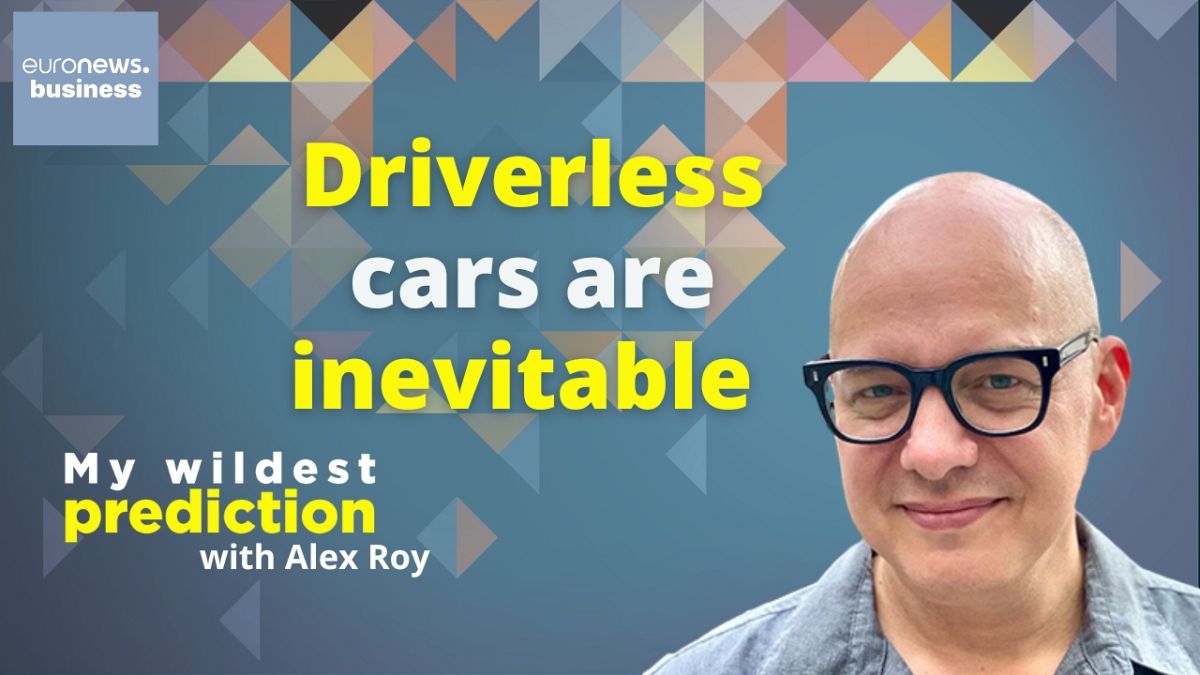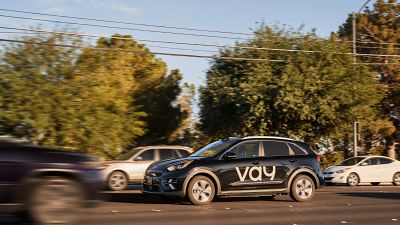The term "wheel" could become outdated as we transition to a future where we all assume the role of passengers. Do we want to stop driving?
Alex Roy, a former executive at Argo AI, a US autonomous driving technology company, is also a rally race driver who asserts that autonomous vehicles are inevitable.
Soon, driverless cars won't be the exception but the norm.
However, he also argues that human driving will never disappear. It begs the question, how will these two predictions coexist? Watch or listen to the latest episode of My Wildest Prediction on the future of mobility.
My Wildest Prediction is a brand new podcast series from Euronews Business where we dare to imagine the future with business and tech visionaries. In this second episode, Tom Goodwin discusses with Alex Roy his wildest predictions on human driving and self-driving cars.
So if it's happening, then when?
The first public presentation of a car without a driver is often attributed to General Motors (GM) at the 1939 New York World's Fair. GM showcased the "Futurama" exhibit, which included an electric vehicle guided by an electrical wire embedded in the roadway.
Almost a century has passed. However, we still don't see autonomous cars as a mainstream reality.
We could be approaching a turning point.
By 2035, autonomous driving has the potential to generate revenue ranging from $300 billion to $400 billion, according to a recent report by the management consulting company McKinsey.
The increasing adoption of Advanced Driver-Assistance Systems (ADAS) in Europe has the potential to reduce the number of accidents by approximately 15% by 2030, according to the same report.
"Everyone thinks change is everything. Everywhere, all at once. It never is. Never," Alex Roy, said.
"There's no such thing as an invention that is created and then immediately propagates globally within days or weeks. The only exception to that might be a phone-based app. But anything physical in the real world takes, at the very least, years, but certainly decades to become ubiquitous."
Roy uses aviation as a metaphor to illustrate this argument.
"Aviation has been around since the late 19th century but you didn't get an airport in every small town for another 50 to 75 years."
Bad news for driving enthusiasts?
Just as the clip-clop of hooves once echoed through city streets, horseback riding was an integral part of daily life, providing a reliable means of transportation for centuries.
However, the advent of automobiles in the early 1900s revolutionised the way we move, rendering horse-drawn carriages a nostalgic relic of the past.
Will driving be reduced to a sport for nostalgics? Roy doesn't think so, especially in countries like the United States.
"It runs in the DNA of American culture," he claims.
He added: "But This is in contrast to a country like China, where there's a monolithic political system that may not want to allow people to own a vehicle that's disconnected and human-operated."
According to him, in between, you have other markets in Asia and Europe.
"Having lived in Europe for several years, it's clear that there's a safe and more optimal balance between freedom and social good in the way cities are laid out, in the way regulations are written", Roy claims.
In his opinion, the car of the future will allow us to switch between automatic and manual driving whenever we desire.
But, most importantly, it will prioritise safety, preventing crashes from occurring.






